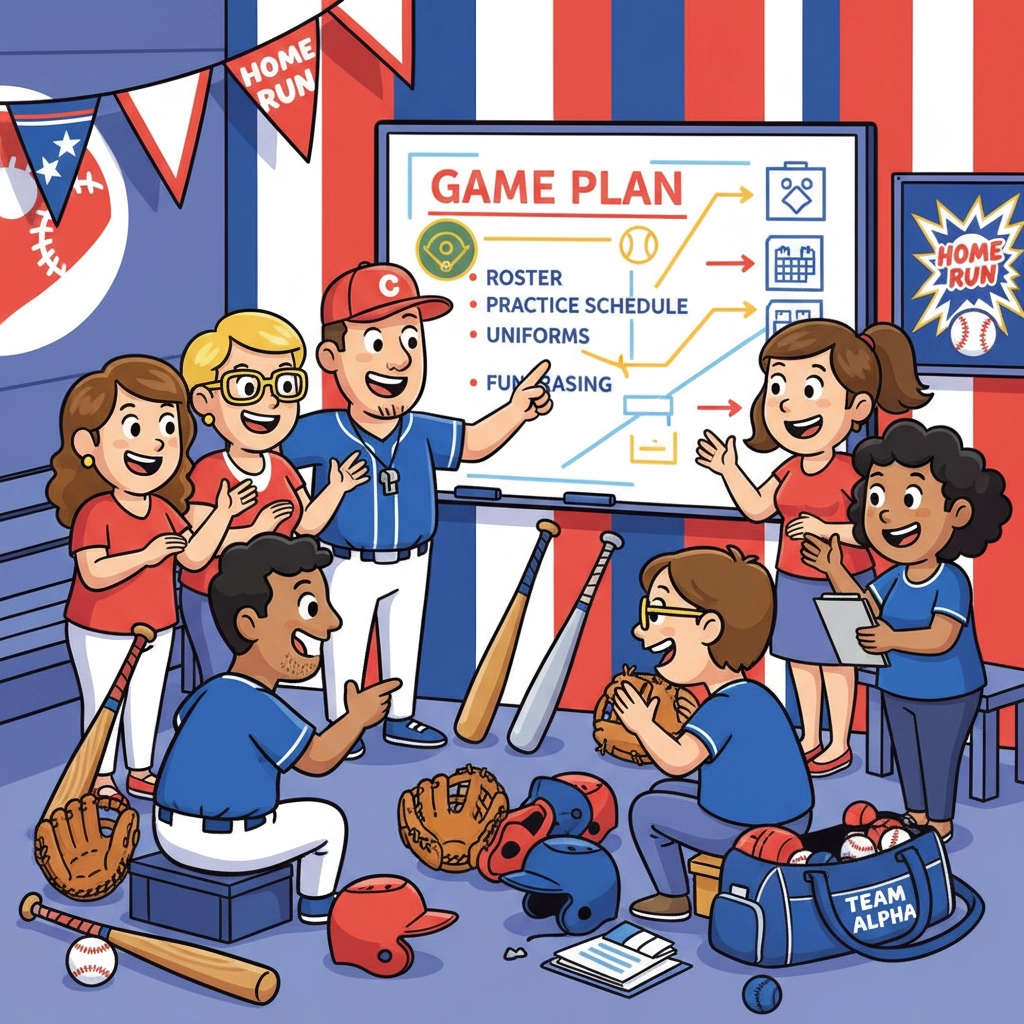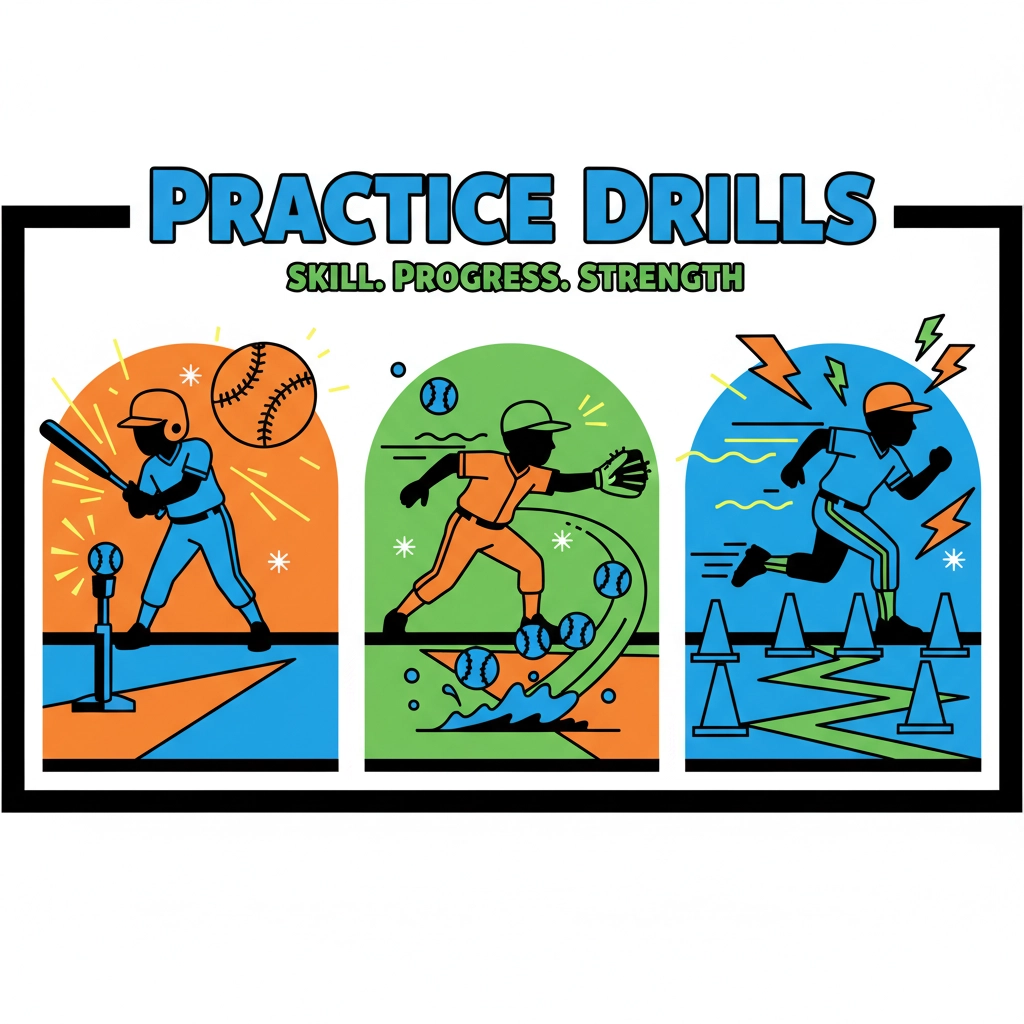The Ultimate Guide to Youth Baseball Instruction: Everything Parents Need to Succeed
- Inside The Lines Sports
- Nov 18, 2025
- 5 min read
As a parent, you want to give your child every opportunity to succeed in baseball. But navigating youth baseball instruction can feel overwhelming: especially when you're not sure what good coaching looks like or how to support your young athlete at home. The truth is, your role as a parent is just as important as any coach when it comes to your child's baseball development.
Whether your child is just starting out or looking to take their game to the next level, this guide will help you understand everything you need to know about youth baseball instruction and how to be your child's biggest asset in their baseball journey.
Understanding Your Role as a Baseball Parent
Your primary job isn't to be your child's coach: it's to be their biggest supporter and advocate. This distinction is crucial because trying to wear both hats often creates confusion and pressure for young players.
Your child needs you to:
Provide encouragement after both good and bad games
Help them set realistic, achievable goals
Create a positive practice environment at home
Trust the coaching process (when you've found quality instruction)
Focus on effort and improvement rather than just results
The competitive landscape in youth baseball has changed dramatically over the past decade. Natural talent alone isn't enough anymore: players need proper fundamental instruction, consistent practice, and a strong support system to reach their potential.

Pre-Season Planning: Setting Your Child Up for Success
Before the first practice even begins, you can set your child up for a successful season. Start by attending all pre-season meetings with coaches and other parents. These meetings establish expectations, communication protocols, and team philosophy: all critical elements for a positive experience.
During these meetings, make sure you understand:
Practice schedule and attendance expectations
Coach's philosophy on playing time and positions
Communication preferences (when and how to reach coaches)
Equipment requirements and team policies
Parent volunteer opportunities and responsibilities
Don't be afraid to ask questions about the coaching staff's experience and approach to instruction. Quality coaches should be able to explain their methods and philosophy clearly.
Setting SMART Goals That Actually Work
Instead of setting vague goals like "get better at baseball," help your child establish specific, measurable objectives that drive consistent progress. Here's how to break it down by skill area:
Hitting Development Goals
Increase batting average by a specific amount (like .050 points)
Make solid contact in 7 out of 10 at-bats
Reduce strikeouts by 20% from last season
Master a specific hitting technique (like keeping head steady through swing)
Fielding Excellence Goals
Reduce throwing errors by 25%
Successfully field 9 out of 10 ground balls hit directly at you
Learn proper footwork for a new position
Improve reaction time on pop flies
Baserunning Skills Goals
Improve home-to-first base time by 0.5 seconds
Successfully steal 5 bases during the season
Learn to read pitcher's timing and tells
Master proper sliding technique
The key is to focus on progress, not perfection. Celebrate small wins and acknowledge effort even when outcomes don't go your child's way.

The Fundamentals That Matter Most
Quality baseball instruction starts with proper fundamentals. As a parent, you should understand what good coaching looks like so you can identify whether your child is receiving quality instruction.
Batting Fundamentals
Good hitting instruction covers the complete swing mechanics: from stance and grip to follow-through. Batting is a full-body movement where every muscle from head to toe contributes to a successful swing.
Look for coaches who:
Teach proper stance and balance
Emphasize keeping eyes on the ball
Focus on contact before power
Use age-appropriate drills and equipment
Provide individual feedback and corrections
Fielding Development
Defense wins games at every level of baseball. Proper fielding instruction should emphasize correct body positioning, footwork, and throwing mechanics for each position.
Quality fielding instruction includes:
Proper glove positioning and technique
Footwork drills for different defensive situations
Throwing mechanics and accuracy
Communication skills between fielders
Position-specific skills and responsibilities
Practice Structure That Works
Great practices balance disciplined skill development with age-appropriate fun. The specific structure depends on your child's age and competitive level, but effective practices typically include:
Dynamic warm-up (10-15 minutes)
Throwing and catching (15-20 minutes)
Batting practice (20-30 minutes)
Fielding drills (20-25 minutes)
Situational practice (15-20 minutes)
Cool down and wrap-up (5-10 minutes)

Creating the Right Environment at Home
Your child's development doesn't stop when practice ends. The most impactful improvement often happens during informal practice sessions at home. Playing catch regularly and practicing basic skills in your backyard significantly increases your child's comfort level with fundamental baseball skills.
Home Practice Essentials
Set up simple practice opportunities that don't require expensive equipment:
Daily catch sessions (even 10-15 minutes helps)
Batting practice with soft toss or tee work
Wall ball for fielding practice
Agility ladder or cone drills for footwork
Video review of professional players' techniques
Building Baseball IQ
Help your child understand the language and strategy of baseball. This includes:
Basic rules and regulations
Proper base running techniques
Understanding different defensive situations
Learning to read pitchers and situations
Developing game awareness and decision-making skills
Finding Quality Instruction and Coaching
Not all baseball instruction is created equal. When evaluating coaches and training programs, look for these key indicators of quality:
What to Look For in Coaches
Demonstrated knowledge of proper mechanics and techniques
Age-appropriate coaching methods that match your child's developmental level
Positive communication style that builds confidence
Individual attention rather than one-size-fits-all instruction
Focus on fundamentals before advanced techniques
Red Flags to Avoid
Coaches who emphasize winning over development
Instruction that doesn't match your child's skill level
Negative communication or public criticism
Lack of safety protocols during practice
Unwillingness to communicate with parents about progress
At Inside The Lines Sports, our experienced instructors focus on individualized instruction that meets each player where they are and helps them progress at their own pace in a supportive environment.

Managing Expectations and Pressure
Today's competitive youth baseball environment can create intense pressure for both parents and players. Your job is to help your child maintain perspective and enjoy their baseball journey.
Keeping It In Perspective
Remember that youth baseball should be a source of:
Personal growth and character development
Skill development and athletic improvement
Positive memories and friendships
Life lessons about teamwork and perseverance
Supporting Without Pressuring
Focus on effort and improvement rather than just results
Avoid coaching from the sidelines during games
Let your child process both victories and defeats
Ask about what they enjoyed rather than just how they performed
Support the coaching staff's decisions publicly

The Long-Term Development Approach
Great baseball players aren't built overnight: they're developed through years of consistent, quality instruction and practice. As a parent, adopting a long-term perspective will help both you and your child enjoy the journey more while achieving better results.
Focus on:
Consistent improvement over dramatic breakthroughs
Skill development over immediate results
Character building alongside athletic development
Love of the game as the foundation for everything else
When you combine quality instruction with proper support at home and realistic expectations, you're setting your child up for success both on and off the baseball field. The lessons they learn through baseball: dedication, teamwork, resilience, and continuous improvement: will serve them well throughout their lives.
Your role as a baseball parent is incredibly important, but it doesn't have to be overwhelming. By understanding the fundamentals of good instruction, creating a supportive home environment, and maintaining proper perspective, you'll help your young athlete develop both their baseball skills and their character. That's the real definition of success in youth baseball.

-with%20white%20strok.png)





Comments